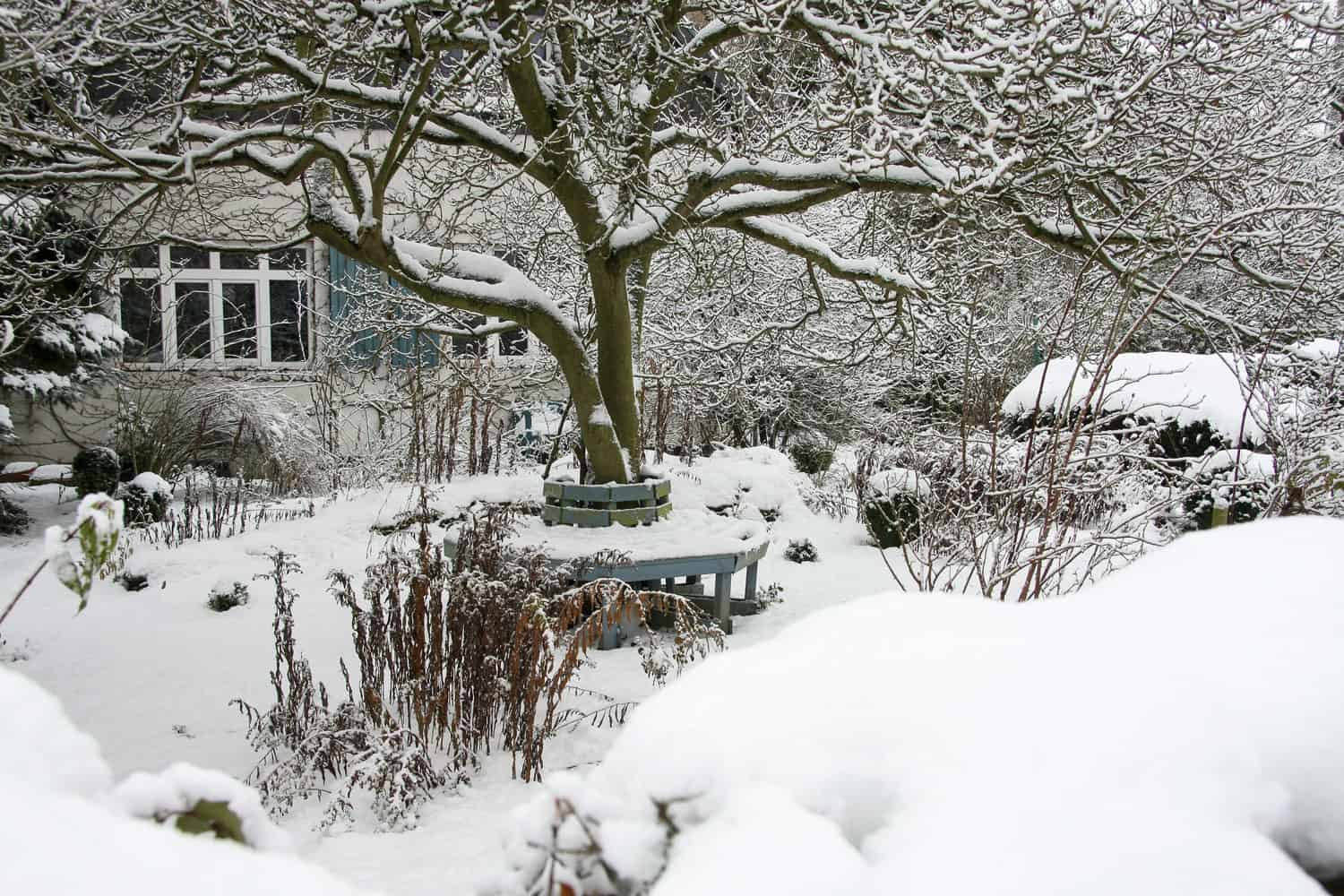Is your winter garden not living up to your dreams? It's a common struggle for many gardeners—watching in dismay as, despite all your efforts, your plants refuse to thrive in the cold months.

However, don't lose hope! Often, hidden, underlying factors silently hinder the growth and vitality of your winter garden.
It's time to get into these mysteries and turn your garden into a vibrant winter wonderland:
- Unfavorable weather conditions
- Inadequate soil nutrition
- Improper watering techniques
- Pests and diseases
- Lack of proper plant selection
Watch your winter garden flourish as you learn how to properly care for it.
1. Unfavorable Weather Conditions
When it comes to winter gardening, unfavorable weather conditions can be a significant obstacle to overcome.
Here are two common weather factors that can negatively impact your winter garden.
Extreme Cold
Extreme cold can be a significant issue for winter gardens. If the temperatures in your area drop below freezing, your plants are at risk of frost damage or even death.
To protect your plants from the cold, consider using frost blankets or row covers. These can help to insulate your plants and keep them warm during cold snaps.
Additionally, you can try planting cold-hardy crops better suited to withstand low temperatures.
Lack of Sunlight
Reduced daylight in winter can starve your plants of essential sunlight. Maximize light exposure by strategically placing your garden in sunny spots.
Reflective mulch or mirrors can also increase light availability to your plants.
Are you worried about your garden braving the harsh winter months? Know the transformative power of fall mulching in our article: The Secret To Protecting Your Garden Beds Through Winter: Fall Mulching Explained.
2. Inadequate Soil Nutrition
Poor soil composition and a lack of essential nutrients can cause your plants to struggle, resulting in stunted growth, yellowing leaves, and poor yields.
Assessing Soil Composition
Start by evaluating your soil's texture and pH. Soil that is too sandy or clayey can impede nutrient and water absorption.
Adjusting the pH can also influence nutrient availability. Enrich your soil by adding organic matter like compost, manure, or leaf litter. This improves structure, water retention, and nutrient content.
For drainage issues, consider adding sand or perlite; for water retention, add clay.
Addressing Nutrient Deficiencies
Plants need various nutrients, including macronutrients (nitrogen, phosphorus, potassium) and micronutrients (iron, zinc, magnesium).
A lack of these can hinder plant growth. Use organic fertilizers like bone meal, blood meal, or mineral fertilizers such as rock phosphate to replenish missing nutrients and promote healthy plant growth.
Click here to buy this on Amazon.
3. Improper Watering Techniques
Watering your garden correctly is crucial, especially in winter. Here's how to avoid common pitfalls:
Overwatering
This can lead to root rot and other issues. Consider reducing your watering frequency if your plants are wilting or have yellow leaves.
Underwatering
Conversely, plants that don't receive enough water may wilt, with leaves turning brown or crispy. Ensure your plants get just the right amount of water, which might not be as frequent as daily.
To avoid watering issues, check the soil moisture level by the feel and appearance method.
This involves collecting soil samples at various depths in the root zone, then estimating the water deficit by feeling the soil and judging its moisture level.
4. Pests and Diseases
Pests and diseases can still be a problem during this time, and they can cause your garden to suffer. Here are some common pests and diseases to watch out for in your winter garden:
Common Winter Pests
Aphids
Aphids are tiny insects commonly found on the undersides of leaves. They can cause stunted growth and distorted leaves in plants.
Controlling aphids can be done using insecticidal soap or by introducing natural predators such as ladybugs or lacewings.
Slugs and Snails
Slugs and snails, known for their slimy appearance, can be problematic during winter. They can be controlled through handpicking, using copper tape, or applying slug bait.
Deer and Rabbits
Deer and rabbits can damage winter gardens by eating plants. To deter them, use fencing or plant deterrents like lavender or marigolds, which are less appealing to these animals.
Prevalent Winter Diseases
Powdery Mildew
Powdery mildew is a fungal disease often arising during winter due to less sunlight and higher humidity.
It manifests as a white powdery substance on plant leaves. Control measures include removing infected leaves and applying fungicides.
Root Rot
Root rot is caused by fungi thriving in wet soil conditions. This disease leads to plant wilting and death. Prevention focuses on ensuring well-draining soil and avoiding overwatering.
Blossom End Rot
Affecting tomatoes and peppers, blossom end rot results from calcium deficiency. It makes the bottom of fruits turn black and mushy.
Ensure adequate calcium in the soil and consistent watering of plants to prevent this challenge.
5. Lack of Proper Plant Selection
Choosing the right plants for your winter garden is crucial to its success. Here are two critical factors to consider when selecting plants for your winter garden.
Choosing Non-Winter Plants
Avoid the mistake of choosing plants unsuited for cold weather. Research and select species known for their resilience in lower temperatures.
Some great options include winter vegetables like kale, broccoli, and Brussels sprouts and winter flowers like pansies and snapdragons.
Ignoring Plant Hardiness Zones
Each plant thrives in specific climatic conditions defined by hardiness zones. Ensure the plants you choose match your area's zone.
Also, factor in any unique microclimates in your garden that might affect temperature resilience.
Final Thoughts
You can nurture thriving plants even in winter by understanding and adapting to your garden's needs. Embrace the challenge and explore new gardening techniques.
With patience and commitment, you'll create a vibrant garden that withstands the cold. Remember, every gardener learns and grows along this journey, and you're part of a supportive community.
Don't let your garden tools suffer in the cold! Uncover the secrets of proper tool maintenance with our exclusive guide: 10 Genius Ways To Clean And Store Garden Tools For Winter.

